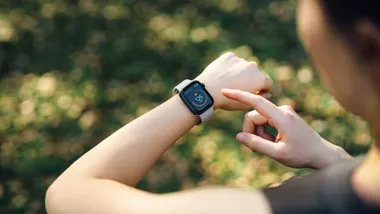You may have heard that carrots help you see in the dark, but is this just an old wives’ tale? What other foods will help maintain good eyesight throughout your life?
Vitamin A
Carrots are a good source of betacarotene, which the body converts to vitamin A. Vitamin A has long been associated with vision and night-blindness is one of the first signs of vitamin A deficiency. Many causes of blindness in children in Third World countries are due to vitamin A deficiency.
In pictures: The best budget recipes
Good sources of betacarotene and vitamin A include: carrots, spinach, pumpkin, egg yolks and apricots.
Important note: Very high levels of vitamin A can be dangerous. Amounts consumed in the diet are safe. It is best to avoid taking vitamin A supplements unless under medical supervision.
Antioxidants
Antioxidants are the broad name given to the hundreds of nutrients found in foods that have beneficial effects for our body.
Many studies have shown that certain antioxidants decrease the potential for oxidative stress in the retina, reducing the likelihood of developing cataracts or other degenerative changes. Of particular interest are the antioxidants lutein and zeaxanthin, which are also part of the carotenoid family.
Lutein and zeaxanthin are found in the macula at the rear of the eye. Low dietary intake of these antioxidants has been linked to age-related macular degeneration (AMD), a disorder that affects the macula and is the biggest cause of blindness of the older population in New Zealand, for example.
Good sources of lutein and zeaxanthin include: egg yolks, corn, orange capsicum, spinach, kiwifruit, courgette, broccoli and peas.
Important note: Antioxidants are found in all fruit and vegetables but the types and quantity vary. It is therefore important to eat a variety of fruit and vegetables every day.
Omega-3
There are two main types of omega-3 fats, which are believed to have an effect on vision. Docosahexaenoic acid (DHA) plays an essential role in the formation of the brain and retina and eicosapentaenoic acid (EPA) has been shown to reduce inflammatory and autoimmune diseases. AMD has an inflammatory component and by reducing this inflammatory response and regulating the immune response in the retina the risk of developing AMD can be reduced.
Good sources of omega-3 include: fatty fish such as salmon, sardines or tuna are high sources of DHA and EPA; and flaxseed oil (linseed), walnuts and eggs contain aplha-linolenic acid (ALA), which can be converted in the body to DHA and EPA. If you don’t like fish, you can always try an omega-3 supplement.
Important note: Studies have shown that omega-3 has a protective effect for AMD; however this can be reduced by high levels of omega-6. Omega-6 is a polyunsaturated fat, such as soybean, rapeseed and sunflower oil, which are found in most processed foods and many plant oils. Try to reduce the intake of these to get the most benefit from your omega-3.
Other common causes of eye disease
Sunlight exposure: Regular exposure to bright sunlight can cause cataracts in later life. Wearing sunglasses will help reduce the glare and provide protection.
Related: Jamie Oliver to open first Australian Ministry of Food centre in April 2011
Smoking: Smoking is linked to increased oxidative stress, platelet clumping and reduced antioxidants and HDL (good cholesterol) levels. As such, blood flow to the choroid (the membrane that covers the eyeball which supplies blood to the retina) may be reduced.
High blood pressure: The blood vessels in your eyes are very fine and may be damaged by the additional pressure your blood is pumped at when your blood pressure is high. Have your blood pressure checked and if it is high follow your doctor’s advice.
This information is provided by the Sanitarium Nutrition Service.
Video: Which is better for you, fresh or frozen vegetables?











